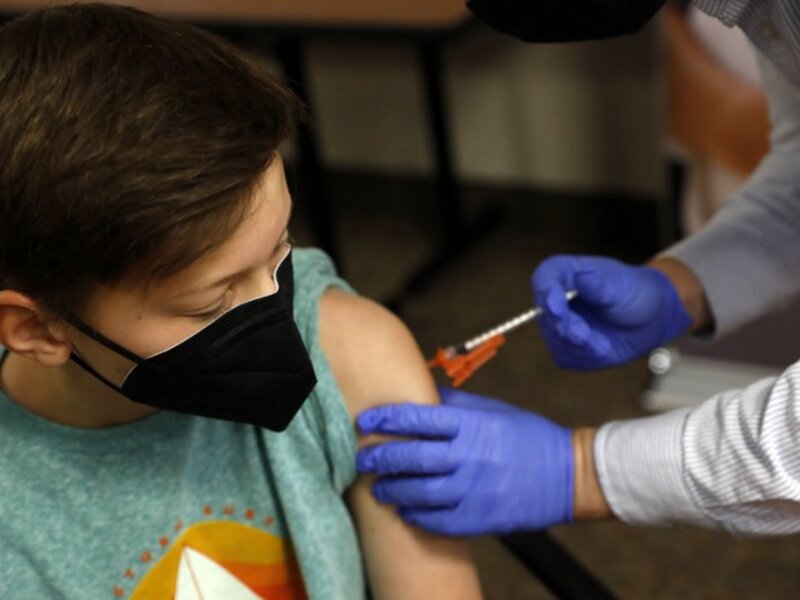After criticism, the Flemish Agency for Care and Health (Zorg en Gezondheid) has nuanced its campaign for childhood vaccination against Covid-19, “so as not to give the impression that there is a distinction between a vaccinated and unvaccinated child.”
When the go-ahead was given on Monday for the vaccination of five- to eleven-year-olds, Zorg en Gezondheid stepped up its campaign with the publishing of leaflets and background information, reports De Standaard.
Flemish Member of Parliament Lorin Parys (N-VA) quickly criticised the language of the campaign, saying it would provide antivaxers with cause for complaint.
'Recommended' versus 'offered'
Because young children rarely become seriously ill from Covid-19, their vaccination is primarily for the benefit of wider society. The relevant committee therefore suggested that primary school children be “offered” the vaccine, rather than saying they were “recommended” to take it.
This distinction was not sufficiently reflected in the campaign materials, prompting a meeting on Wednesday between the Committee and Zorg en Gezondheid.
Related News
- Government’s campaign for childhood vaccination contains errors, says Flemish MEP
- Only a quarter of parents are motivated to have their children vaccinated
“We certainly don't want our materials to serve as an argument for people who are against vaccination,” said Ria Vandenreyt of Zorg en Gezondheid.
“We are careful not to give the impression that there is a distinction between vaccinated and unvaccinated children. That's why we have changed our baseline from ‘better protected, to keep on learning, playing and doing sports’ to ‘better protected, to keep on learning, playing and doing sports together.’”
Disagreement on the best form of immunity
The leaflet says that immunity through vaccination is “better and longer-lasting” than immunity through infection. This was also criticised, but that passage was not amended.
“There are no studies that specifically deal with children. Research on adults shows that immunity after illness differs from person to person, whereas with vaccination there is more control over this,” Vandenreyt said, adding that “there is no reason to think that this would be different in children.”
The website also originally stated that no side effects had yet been observed in young children after vaccination, which was incorrect. There have been mild, treatable cases of heart infection in the US. That information has since been added.
“We are aware that the vaccination of children is very sensitive, so we try to communicate as objectively as possible,” said Vandenreyt. “But the campaign also has to be a bit appealing. We cannot include every detail in the brochure. The extensive information is on our website. If there is new information, we adapt it as quickly as possible.”

